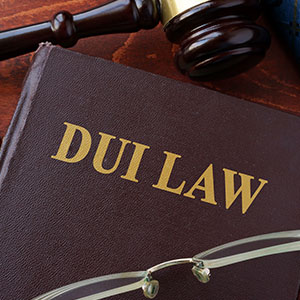
Pretrial Conferences in Federal Court An important aspect of a federal criminal case that happens early on is a pretrial conference. Pretrial conferences are designed to ensure that the trial proceeds smoothly and efficiently. They minimize the likelihood of errors and misunderstandings, thereby promoting a fair and just legal process. How you handle a pretrial conference can, in some ways, set the tone for the remainder of your case, so be sure to read through this section carefully. Let’s dig in a little deeper: Clarification Pretrial conferences help identify and clarify the precise issues in dispute, streamlining matters that will be addressed at trial, thus making the process more efficient and focused. Planning The judge and attorneys discuss the trial schedule, the order of witnesses, and the presentation of evidence. This includes…Read More

Comparing Federal and State Arrest Procedures Both federal and state arrest procedures adhere to general constitutional principles. There are marginal differences in some areas, such as the title for prosecutors and detention facilities. Federal prosecutors, known as Assistant United States Attorneys, handle federal cases and try them in Federal Court. In contrast, state prosecutors, known as Deputy District Attorneys, handle state cases in State Court. People arrested by federal officers are usually detained in federal detention centers or facilities contracted or controlled and managed by federal agencies. Those arrested by state or local officers are held in county jails. These minor differences aside, federal and state arrests differ significantly in jurisdiction, authority, and specific practices. Jurisdiction Federal arrests are carried out by federal law enforcement officers such as FBI agents, DEA agents,…Read More

Unpacking Federal And State Crimes Whether you or someone you know has been accused of a crime, or you’re just curious about the law, we need to start with the basics. Part of that is understanding the distinction between federal and state crimes. Each involves different laws, jurisdictions, prosecuting agencies, courthouses, and potential penalties. A federal crime is an offense that is illegal under United States federal law and prosecuted by federal government agencies such as the Federal Bureau of Investigation (FBI), the Drug Enforcement Administration (DEA), or the Department of Homeland Security (DHS). Federal crimes typically involve violations of statutes enacted by Congress and cover a wide range of activities, including: International And Interstate Activities These are crimes that cross state or national lines, such as drug trafficking, human trafficking, or…Read More

New Criminal Laws That May Reduce Sentencing In California Since the passing of Proposition 47 in California, there have been a number of new criminal laws put into place that reduce sentencing for certain criminal offenses. Under these new laws, if the offense is considered non-violent and the offender has no prior convictions on their record, they may be eligible to have their sentence reduced or eliminated altogether. Goals Of The New Criminal Laws In California These new laws were created with two main goals in mind – to help reduce overcrowding in prisons by eliminating low-level offenses from being classified as serious crimes and to provide more opportunities for rehabilitation for those who commit minor offenses. Many people believe that this will be beneficial for both offenders and society as a…Read More

PWID Charges: What You Need To Know PWID charges, or possession with intent to distribute, can be very serious drug crime charges. If convicted, you stand to face much harsher penalties than you do for simple drug possession charges. In fact, the punishments are more severe the more drugs are found in your possession. Here’s what you should know about PWID charges and how to fight for your rights under California law. What Do California Prosecutors Have to Prove In A PWID Case? In order to be successful, California prosecutors must prove three elements of the crime: The substance the defendant was found to be in possession of was a controlled and/or illegal substance To prove this point, prosecutors must prove that the defendant was in actual or constructive possession of the substance. They…Read More

Pasadena DUI Laws: What You Need To Know California DUI Laws are set in place to help prevent accidents, injury, and even death. California DUI Laws are written by the California Vehicle Code (VC). The penalties associated with a DUI Conviction will vary depending on whether it is your first offense or if you have prior convictions. It does not matter how much alcohol was involved in the accident; all that matters is that your blood alcohol content was over the legal limit. First Offense DUI In Pasadena The penalties associated with a First Offense DUI are as follows: Fine of $390-1000 Jail time for 96 hours to 6 months (depending on prior convictions) **Minimum 48 hours in jail if the DUI caused an accident involving injury or death Driver’s license suspension…Read More

Can You Get Arrested For A Criminal Offense In California Without An Arrest Warrant? An arrest is a seizure; thus, police must have a warrant or some other justified reason to make an arrest. Both the local and state police must respect your right according to the U.S. constitution and abide by California law in making an arrest for a Criminal offense in California. The police can arrest if they have a warrant signed by the magistrate judge. This legal document is only obtainable if the police present enough evidence that you committed the crime. The warrant will be invalid if the police intentionally present false information. In California, the police can arrest you with or without a warrant. If there is an arrest without a warrant, it is most likely for…Read More

Assault vs Battery In California It is common for many to use assault and battery interchangeably. However, they are two criminal offenses that mean different cases entirely. This guide will help you to understand the major difference between assault and battery under California laws. What Is A Battery Under California Laws? A battery under California laws is when an individual charges another with a violent act. Hence, an offense is considered a battery when the violent act is carried out willfully with the precise intent of causing harm. Even if the action was done indirectly or the push did not cause pain, it is still considered a battery. A battery can also be in two panels; panel code 242 and panel code 243. Charges are under a panel based on the severity…Read More

What Makes Misdemeanor Crimes & Felonies Different In California? Like most other American states, California treats a felony crime as significantly more severe in nature than a misdemeanor offense. The penalties associated with a felony charge if prosecutors are successful are typically tougher and last much longer. The most important difference to recognize between a misdemeanor and felony charges is the severity of all associated penalties, as well as the length of incarceration. This is what you should know. Felonies Defined Felony charges generally carry a penalty of more than one year in state prison. It’s normally a violent crime that involves deliberately causing critical bodily injury to someone else. Or, felony charges may be assessed when someone obtains large sums of money illegally. These are a few examples of common felony…Read More

What Are The Most Common Myths Of Crime TV Shows? Criminal justice and fictional crime shows are among the most popular series on television. While enjoyable and interesting, these shows aren’t necessarily wholly truthful in their portrayals of how the U.S. criminal justice system works when someone is accused of and tried for a crime. Here’s what you should know about the most common myths of crime TV shows and how a criminal defense lawyer can assist you if you or a loved one have been charged with a criminal offense. The Investigation Moves Quickly Criminal investigators on television have less than one hour to solve a case, so the show’s authors must keep the plotline moving at a reasonable clip. As a result, a few stages of the criminal process condensed.…Read More
